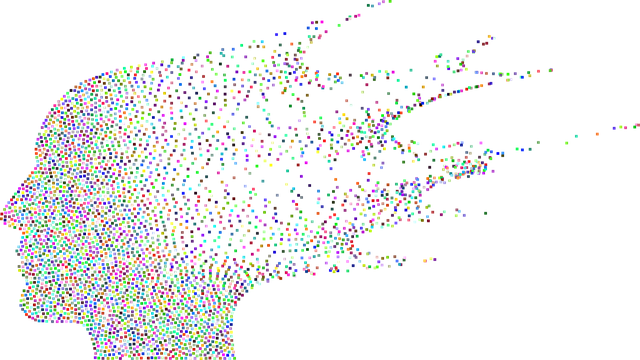Cultural sensitivity in mental healthcare, particularly within Golden Chronic Illness Therapy (GCIT), is vital for effective treatment. By understanding diverse cultural backgrounds and adapting therapy sessions accordingly, therapists can offer personalized care that resonates with patients from various ethnic, racial, and social groups. GCIT integrates specific stress reduction methods and positive thinking exercises aligned with each patient's cultural framework, enhancing trauma support services. Cultural competency training for healthcare providers is crucial to improve inclusive care, patient engagement, and overall mental health outcomes, fostering better stress management in diverse populations. Adhering to golden rules, like respecting cultural identities and incorporating dietary restrictions, creates a safe space where patients feel understood and empowered, leading to improved holistic well-being.
Cultural sensitivity is an indispensable aspect of mental healthcare, ensuring effective treatment and positive patient outcomes. This article explores the intricate relationship between cultural competence and mental wellness, focusing on chronic illness therapy. We delve into practical strategies, or ‘Golden Rules’, for healthcare professionals to navigate diverse cultural backgrounds, enhancing care quality. By understanding the impact of cultural considerations, we can revolutionize Golden Chronic Illness Therapy, fostering more inclusive and transformative support for patients from various ethnic and social groups.
- Understanding Cultural Sensitivity in Mental Healthcare
- The Impact of Cultural Considerations on Chronic Illness Therapy
- Golden Rules for Practicing Culturally Sensitive Care in Mental Health
Understanding Cultural Sensitivity in Mental Healthcare

Cultural sensitivity is a cornerstone in modern mental healthcare, recognizing that every individual’s experience and expression of mental health issues are deeply influenced by their cultural background. This approach aims to bridge the gap between diverse patients and healthcare providers, ensuring equitable and effective treatment. In the context of Golden Chronic Illness Therapy, cultural sensitivity becomes a powerful tool for fostering meaningful connections and tailored support.
Understanding cultural nuances allows therapists to adapt their practices, offering personalized therapy sessions that resonate with clients from various ethnic, racial, and social backgrounds. This adaptability extends to integrating specific stress reduction methods and positive thinking exercises that align with the patient’s cultural framework, enhancing the overall effectiveness of trauma support services.
The Impact of Cultural Considerations on Chronic Illness Therapy

Understanding cultural sensitivity is paramount in mental healthcare as it significantly influences the effectiveness of chronic illness therapy. Each individual’s experience with health issues is shaped by their cultural background, beliefs, and practices, which can impact their engagement in treatment and recovery outcomes. For instance, a patient from a community emphasizing collective over individual well-being might view mental health concerns through a different lens compared to someone from a more individualistic culture. This cultural context must be considered when tailoring Golden Chronic Illness Therapy plans.
Incorporating cultural competency training for healthcare providers is essential to ensuring effective support for diverse patient populations. By recognizing and addressing these considerations, mental health professionals can enhance their ability to deliver inclusive care, improve patient engagement in treatment, and ultimately contribute to better Mental Health Awareness and Stress Management outcomes.
Golden Rules for Practicing Culturally Sensitive Care in Mental Health

When providing mental healthcare services, especially to individuals from diverse cultural backgrounds, adhering to Golden Rules is paramount. These guidelines ensure that every patient receives care that respects their unique cultural identities and promotes healing. The first step involves actively listening and learning about a patient’s cultural beliefs, values, and practices. Mental health professionals should inquire about dietary restrictions, traditional healing methods, and familial dynamics as these can significantly influence a person’s mental wellness. Incorporating the patient’s cultural context into therapy sessions creates a safe space where they feel understood and empowered to share their experiences openly.
Another crucial aspect is ensuring that healthcare materials and practices are linguistically accessible. This involves offering translations, providing information in various languages, and employing culturally competent staff who can bridge communication gaps. By implementing these strategies, mental wellness coaching programs and development initiatives can foster a sense of belonging among patients with chronic illness therapy needs. Cultural sensitivity in mental healthcare practice not only enhances patient satisfaction but also improves outcomes by addressing the individual’s holistic well-being.
Cultural sensitivity is an indispensable aspect of mental healthcare, especially when addressing complex issues like chronic illness. By applying the golden rules outlined in this article—including awareness, education, and adaptability—mental health practitioners can provide more effective care tailored to diverse cultural backgrounds. This approach ensures that everyone receives respectful, compassionate, and ultimately transformative Golden Chronic Illness Therapy.














